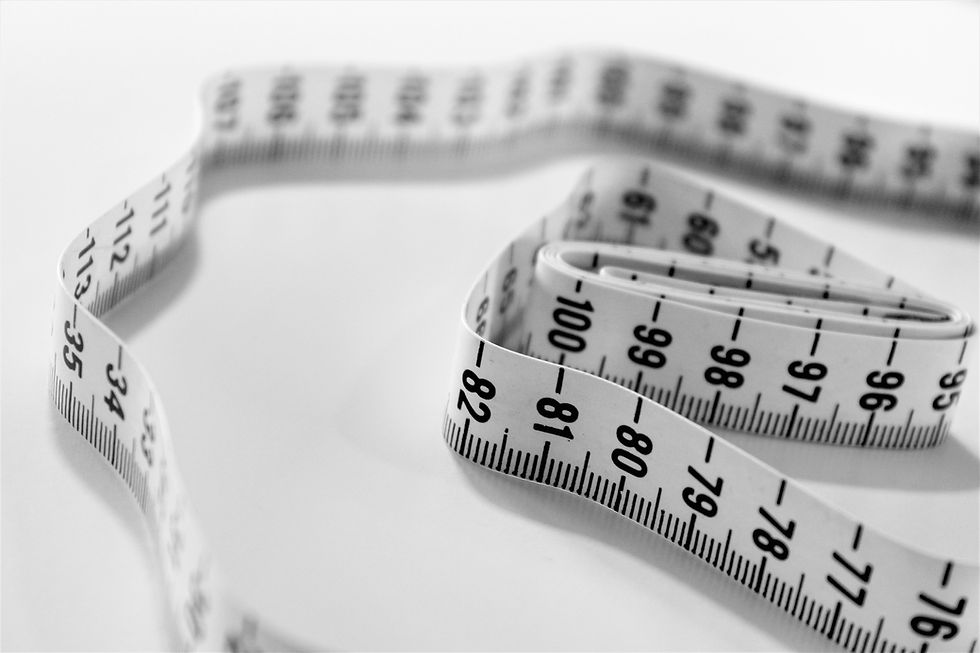5 Ways a Poor Diet Can Worsen PCOS Symptoms and Make Weight Loss Harder
- Lisa Smith Nutritionist

- Jun 28, 2025
- 4 min read
Updated: Aug 4, 2025

If you’ve been told to just “eat less and move more” for PCOS weight loss, you're not getting the full picture.
PCOS affects multiple hormone systems that influence metabolism, appetite, inflammation and fat storage. My previous post about PCOS and inflammation explains more about the triggers.
A poor diet doesn’t just add calories, it can disrupt hormone signalling, increase cravings, and make your body more resistant to fat loss.
That’s why nutrition support for PCOS needs to be about more than weight loss. It’s about hormone health. More about functional nutrition for PCOS here.
Here are five key ways poor dietary habits can keep you stuck in the PCOS weight gain cycle, and what you can do instead.
1. Too Many Ultra-Processed Carbs = More Insulin Resistance
Highly processed foods like white bread, cereal bars, crisps and sugary snacks cause rapid blood sugar spikes. This triggers a strong insulin response, and over time, can lead to insulin resistance, a core driver of PCOS for many women.
When insulin stays high, your body stores more fat (especially around the middle), and finds it harder to break it down.
PCOS-friendly fix: Focus on fibre-rich carbs (like lentils, oats, sweet potato, or quinoa) paired with protein and healthy fats to slow down blood sugar release.
This improves insulin sensitivity and keeps you feeling full for longer. Learn more about the role of healthy fats for PCOS in this post.
2. Not Enough Protein = Cravings, Fatigue and Muscle Loss
Many women with PCOS aren’t getting enough protein, especially at breakfast or lunch. Low protein intake can lead to:
Blood sugar dips and intense cravings
Slower metabolism from muscle loss
Poor recovery and low energy
Muscle is your metabolic engine, losing it makes weight management much harder.
PCOS-friendly fix: Aim for around 20–30g of protein per meal, from foods like eggs, fish, Greek yoghurt, pulses, chicken or tofu. Start with these breakfast ideas.
3. Skipping Meals or Eating Too Little = Hormonal Chaos
PCOS can cause appetite dysregulation, so skipping meals might feel easy. But under-eating (or going too long without eating) can trigger:
Cortisol spikes (your stress hormone)
Blood sugar crashes
Overeating later in the day
This cycle makes it harder for your body to feel safe enough to release fat.
PCOS-friendly fix: Eat regular, balanced meals to support blood sugar and reduce stress on the body. A stable eating rhythm helps regulate hunger hormones and keeps metabolism steady. You can read more about the hidden dangers of quick fix weight loss diets for PCOS in this post.
4. Low Fibre Intake = Hormone Imbalance and Poor Detox
Fibre isn’t just about digestion, it also supports:
Oestrogen clearance via the gut
Insulin sensitivity
A healthy gut microbiome, which affects inflammation and weight
Women with PCOS often need more fibre, not less, especially if you're trying to improve hormones and reduce cravings.
PCOS-friendly fix: Aim for 25–30g of fibre per day from a mix of vegetables, wholegrains, seeds, pulses and fruit. Gradually increase and drink plenty of water to support your gut.
5. Too Much Caffeine, Sugar or Alcohol = Inflammation and Hormonal Disruption
Caffeine, sugar and alcohol can all contribute to chronic inflammation, blood sugar dysregulation and hormonal imbalances in PCOS. When consumed too frequently, they:
Disrupt cortisol and oestrogen balance
Interfere with sleep and recovery
Trigger cravings and fatigue
PCOS-friendly fix: You don’t have to cut everything out, but notice what your body feels like after too much of these. Try:
Cutting back on caffeine after midday
Choosing naturally sweet foods like berries
Swapping wine for a spritz or kombucha on quieter nights
So, Does Diet Matter in PCOS?
Absolutely, but not in the way diet culture has led us to believe. It’s not about cutting out carbs or eating “clean” 100% of the time.
It’s about building meals that support your hormones, energy and metabolism, so your body can start working with you, not against you. If you are struggling with sugar or carb cravings, try my PCOS Sample Meal Plan or 7-day sugar reset.
How I Help PCOS Clients in the Hormone Shift Method
I'm a BANT registered nutritionist and health coach, specialising in PCOS weight and pregnancy planning.
Inside my 12-week Hormone Shift Method, we take a practical, food-first approach that helps you:
Improve blood sugar and cravings
Understand what your hormones are telling you
Use food to support insulin, fertility, inflammation and oestrogen clearance
Build real-life habits that work with your lifestyle
You won’t get a generic diet plan, you’ll get weekly guidance and strategies that make sense for your body and symptoms.
If you have just come off the pill and want to learn more about your hormones, try my Off the Pill Guide.
Want to stop second-guessing what to eat for PCOS?
I work online with women locally in Manchester, and across the UK. Book a free 30-minute discovery call to find out if the Hormone Shift Method is a good fit for you.
Not ready for a full programme?
Try one of my mini programmes here.
Updated in June 2025 to reflect new PCOS research and nutrition strategies.
Note: This blog post is meant for informational purposes only and should not replace personalised advice. Always consult a registered nutritional therapist or nutritionist before making any significant changes to your diet or lifestyle.






Comments